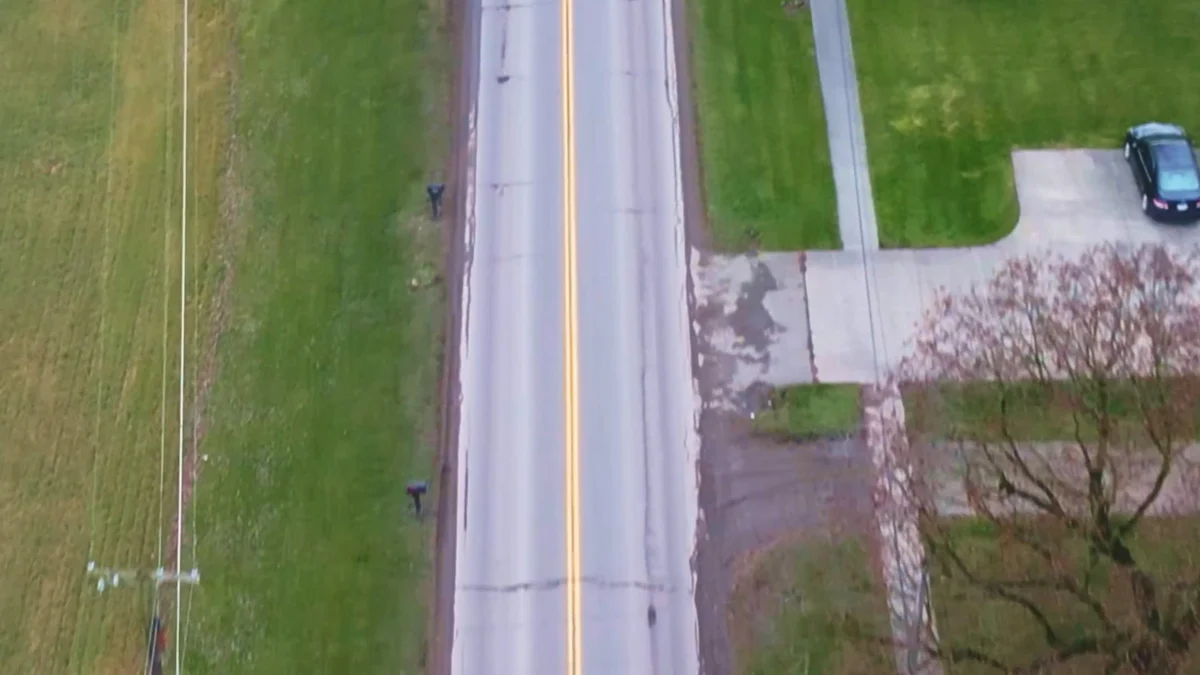Smart Tips to Lower Insurance Rates After a Violation
Image Source: pexels
Getting a speeding ticket can feel like a financial setback. Insurance rates often spike, leaving many drivers frustrated. I’ve been there, but I learned that taking proactive steps can make a difference. Simple actions like enrolling in defensive driving courses or comparing policies can help. Knowing how to lower car insurance after a speeding ticket is empowering.
Key Takeaways
-
Take a defensive driving class to save 2% to 10% on insurance. Spending a little now can save more later.
-
Check prices from different insurance companies often. This helps you get cheaper rates, even after a ticket.
- Drive safely and avoid accidents. Good driving can lower your insurance costs because companies like safe drivers.
How Speeding Tickets Affect Insurance Rates

Image Source: pexels
Why Insurance Rates Increase After a Violation
I’ve learned that insurance companies see speeding tickets as red flags. They view violations as signs of risky driving, which increases the likelihood of accidents. This perception leads to higher premiums. The severity of the violation also matters. For example:
-
Minor violations, like going 5 mph over the limit, might only cause a small increase.
-
Major violations, such as excessive speeding or DUI, can result in significant rate hikes.
- Accumulating multiple tickets within a few years can label you as high-risk, making it harder to find affordable coverage.
It’s frustrating, but understanding why rates increase helped me take steps to improve my situation.
How Long a Speeding Ticket Impacts Your Record
The length of time a speeding ticket stays on your record depends on where you live. I found this table helpful when researching:
| State | Duration on Record |
|---|---|
| Alaska | 1 year |
| California | 3 years or longer |
| Florida | 5 years or longer |
| Michigan | 7 years |
| Montana | Indefinitely |
In most states, tickets remain on your record for at least a year, but some states keep them indefinitely. Knowing this motivated me to drive more carefully and avoid future violations.
Factors That Determine the Rate Hike
Several factors influence how much your insurance rates increase after a ticket. These include:
-
Your driving history and whether it’s your first offense.
-
The location of the violation.
- The severity of the offense.
For instance, a first-time ticket might not affect your rates much, but multiple violations or serious offenses can lead to steep increases. Staying informed about these factors helped me plan better and take control of my insurance costs.
How to Lower Car Insurance After a Speeding Ticket

Image Source: pexels
Enroll in a Defensive Driving Course
I discovered that taking a defensive driving course can significantly reduce insurance premiums. These courses teach safe driving habits, which insurance companies value. Many providers offer discounts ranging from 2% to 10% for completing such programs. For example, I saved over $180 annually after finishing a $25 course. The savings continued for several years, making it a worthwhile investment.
| Course Cost | Discount Rate | Annual Savings |
|---|---|---|
| $40 | 10% | $170 |
| $25 | 10% | $181 |
Some insurers, like GEICO and State Farm, provide discounts in most states. I checked with my provider to confirm eligibility before enrolling. This small step helped me feel more in control of my finances.
Tip: Defensive driving courses are affordable and can lead to long-term savings. Check with your insurer to see if they offer discounts for completing one.
Compare Quotes from Multiple Insurance Providers
Shopping around for insurance quotes opened my eyes to how much rates can vary. After my speeding ticket, I compared policies from at least five providers. Some companies specialize in offering competitive rates for drivers with violations. By switching to a new insurer, I saved nearly 15% on my premium.
I recommend using online comparison tools or contacting agents directly. This process doesn’t take long and can uncover better deals tailored to your situation.
Ask About Discounts and Bundling Opportunities
I learned that asking about discounts can make a big difference. Many insurers offer savings for bundling auto and home insurance or for being a loyal customer. I also found discounts for low mileage, good grades (for students), and even installing anti-theft devices in my car.
For example, bundling my auto and renters insurance saved me an additional 10%. These small adjustments added up, helping me manage my budget more effectively.
Note: Don’t hesitate to ask your insurer about all available discounts. You might be surprised by how much you can save.
Increase Your Deductible to Lower Premiums
Raising my deductible was another strategy that worked for me. A higher deductible means I pay more out of pocket in case of an accident, but it also lowered my monthly premium. I increased my deductible from $500 to $1,000 and saw a noticeable drop in my rates.
This option isn’t for everyone. I made sure I had enough savings to cover the higher deductible if needed. However, it’s a great way to reduce costs if you’re confident in your driving skills and want to save money upfront.
Tip: Consider increasing your deductible if you rarely file claims. It’s an effective way to lower your premium without changing your coverage.
Legal Strategies to Reduce the Impact of a Speeding Ticket
Contest the Ticket in Court
When I received my speeding ticket, I decided to contest it in court. It felt intimidating at first, but I realized it was a chance to reduce the impact on my record. By presenting my case, I could challenge the evidence or argue for leniency. For example, I pointed out unclear signage in the area where I was ticketed. Sometimes, officers don’t show up to court, which can lead to a dismissal. Even if the ticket isn’t dismissed, the judge might reduce the fine or points on your license. Taking this step gave me hope and a sense of control over my situation.
Consult an Attorney for Expert Advice
Hiring an attorney made a huge difference for me. They handled all the legal proceedings, so I didn’t need to appear in court. Attorneys often have relationships with local prosecutors and judges, which can work in your favor. They know how to navigate the system and might even get the ticket dismissed. In my case, the attorney helped prevent points from being added to my record, which kept my insurance rates from skyrocketing. This professional guidance saved me time and stress.
-
Attorneys can:
-
Prevent points on your driving record.
-
Help avoid increased insurance premiums.
- Provide valuable insights into the local court system.
-
Negotiate for a Lesser Charge or Traffic School
Negotiating with the prosecutor turned out to be another effective strategy. I asked for a lesser charge, and they agreed to reduce my speeding ticket to a non-moving violation. This meant fewer points on my license and a smaller fine. In some cases, you can also request traffic school to keep the offense off your record. Even if you’re not eligible, prosecutors might allow it as part of a settlement. These negotiations helped me learn how to lower car insurance after a speeding ticket and avoid long-term financial consequences.
-
Common outcomes of negotiation include:
-
Permission to attend traffic school.
- Lower fines or dropped violations.
Long-Term Strategies for Lower Insurance Rates
Maintain a Clean Driving Record
I realized that maintaining a clean driving record is one of the most effective ways to lower my insurance rates over time. Insurance companies reward responsible drivers because they see them as less risky. A clean record shows that I’m less likely to file claims, which helps me qualify for lower premiums.
-
A clean driving record signals responsible behavior to insurers.
-
Drivers with no violations are less likely to file claims.
- Insurance providers charge higher premiums for those with poor driving histories.
After my speeding ticket, I made a conscious effort to follow traffic laws and avoid distractions while driving. Over time, this helped me rebuild trust with my insurer and gradually reduce my rates. Staying vigilant behind the wheel not only saved me money but also made me a safer driver.
Improve Your Credit Score
I was surprised to learn how much my credit score affected my car insurance rates. Drivers with poor credit often pay nearly double for full coverage compared to those with excellent credit. For me, improving my credit score became a priority. By paying bills on time and reducing debt, I saw my score rise steadily. This improvement saved me hundreds of dollars annually on my insurance.
-
Poor credit (under 580) can lead to rates that are 97% higher than those with exceptional credit (above 800).
- Improving credit from poor to average can save around 20%, or $600 annually.
Focusing on my credit score not only helped me financially but also gave me a sense of accomplishment. It’s a long-term strategy that pays off in more ways than one.
Regularly Review Your Insurance Policy for Savings
I make it a habit to review my insurance policy every year. This simple step ensures I’m not overpaying for coverage I no longer need. I also check for new discounts or changes in my circumstances that could lower my rates. For example, when I started driving fewer miles, I qualified for a low-mileage discount.
Regular reviews helped me stay informed about how to lower car insurance after a speeding ticket. It’s a proactive approach that keeps me in control of my finances. I recommend setting a reminder to review your policy annually—it’s a small effort with big rewards.
Reducing insurance costs after a speeding ticket is possible with the right approach. I’ve learned that small steps, like contesting a ticket or completing a defensive driving course, can make a big difference. Shopping around for better rates and maintaining a clean record also pays off over time.
Key Takeaways :
Defensive driving courses may remove points and lower rates.
- Shopping for new policies reveals insurers with better offers.
Proactive efforts lead to long-term savings. Taking action today ensures a brighter financial future tomorrow.
FAQ
How much can a defensive driving course lower my insurance rates?
I’ve seen discounts range from 5% to 15%. It depends on your insurer and state. For me, it saved over $180 annually.
Tip: Always confirm eligibility with your provider before enrolling.
Can I remove a speeding ticket from my record?
Yes! Some states allow ticket removal through traffic school or court negotiations. I successfully removed mine by completing a state-approved course.
Should I switch insurers after a speeding ticket?
Absolutely! Comparing quotes helped me save nearly 15%. Some insurers specialize in offering better rates for drivers with violations.
Note: Use online tools to compare rates quickly and easily.
